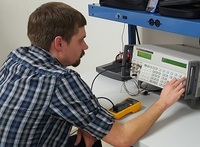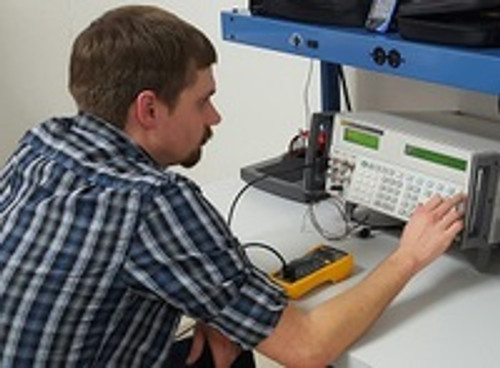Test Equipment USA, Your Local Metrologist

Hello, there. This is Dr. Weather, your local metrologist.”
“No, you mean meteorologist when you are describing someone that understands weather. A metrologist is someone that deals with Metrology, or the study of measurement. There is a huge difference between the two words.”
So this means that we here at TestEquipmentUSA are metrologists, not meteorologists. We work with measurements and calibration is one aspect of measurement. In our case we are measuring your equipment and comparing it to our standard.
I make it sound simple, and in concept it is simple. But there are many other factors that we deal with. For pressure measurements we have a dead weight tester. This is the highest level of tester available. It uses accurately known weights (pounds) applied to an accurately known piston (area or square inches) to give a pounds per square inch (PSI) reading.
But to get the really accurate readings you need to know the local gravity (vs. the “standard” gravity), the atmospheric pressure, the temperature, and the relative humidity. Gravity affects the “weight”, or pounds, being applied; the atmospheric pressure presses on the piston causing variations; the temperature affects the size of the piston; and the one that still amazes me – the humidity affects the reading because the masses (or weights, non-technically speaking) “float” in the air.
This last one, the humidity, typically only changes things by a few ppm (or, for a 10,000 psi reading, it might change it by 0.05 psi). For a typical pressure gauge of 1% accuracy this same 10,000 psi reading can be off by +/- 100 psi. So, while you may not need the accuracy a typical calibration laboratory can supply, the lab still needs to be able to factor in all of the sources of error to ensure that your calibration is as accurate as possible.


 LiveSupporti
LiveSupporti